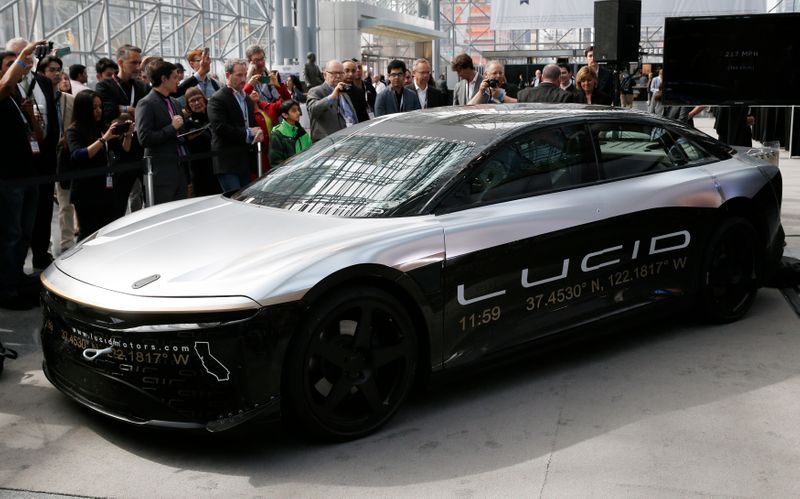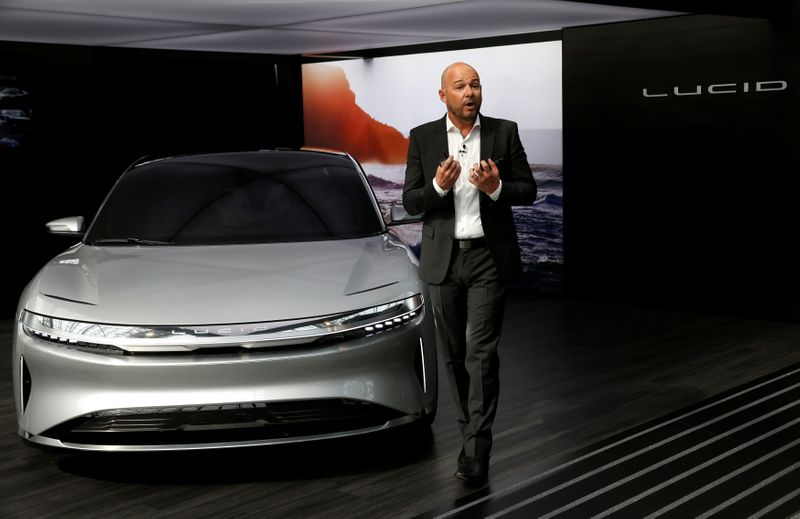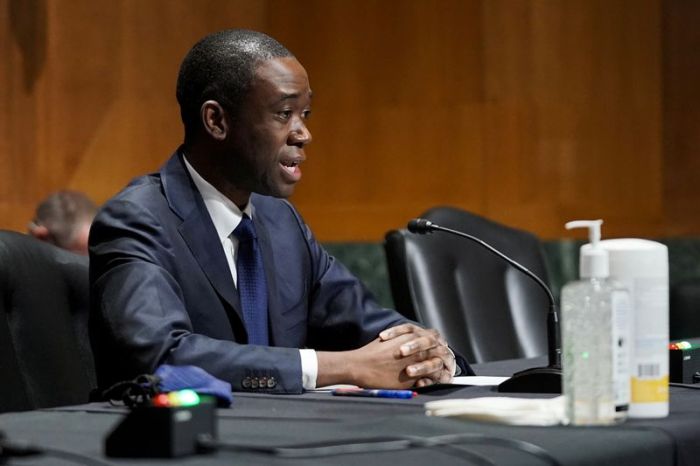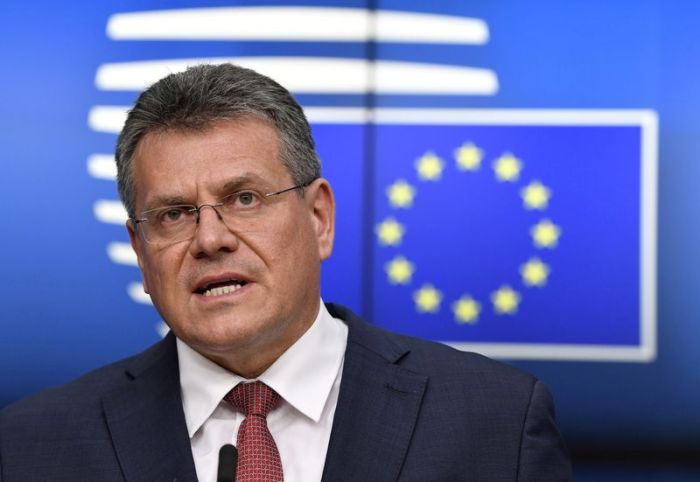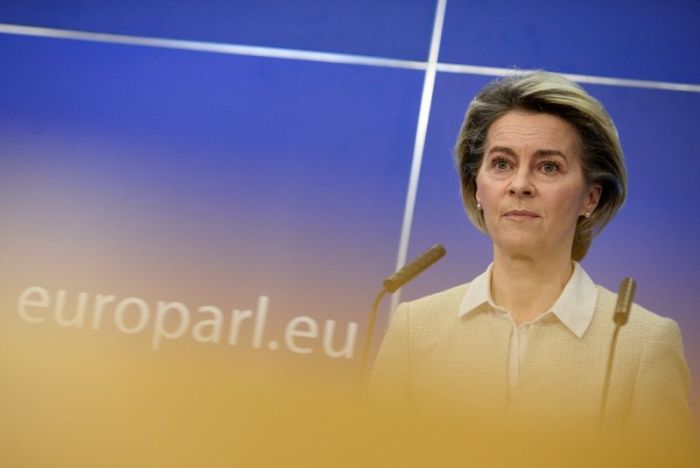(Reuters) – Shares of Churchill Capital IV Corp fell more than 40% on Tuesday, as its merger with electric vehicle maker Lucid Motors sparked concerns about the real worth of the company which has yet to start regular production.
The share slump followed weeks of speculation about the deal that had pushed the stock of Churchill Capital IV, a special purpose acquisition company (SPAC), up more than 500%.
Still, even after the slide, Churchill Capital IV’s stock price implied a $56 billion market capitalization for Lucid once the deal closes, making it one of the highest valued vehicle makers in the world, and marking a hefty premium to the price at which the Lucid agreed to merge with Churchill Capital IV.
It also implied a paper gain of nearly $3.3 billion for veteran dealmaker Michael Klein and his partners in the blank-check acquisition firm.
“We’ve got the marriage made in heaven. The royalty of SPACs is Michael Klein and Churchill Capital IV,” Lucid Chief Executive Peter Rawlinson told Reuters in an interview.
Shares in Elon Musk’s Tesla have surged more than 10 times in value over the past year to around $900 and the appreciation has pushed many investors to chase the next big thing in the electric vehicle sector.
This has kicked off a rush of SPAC mergers in the space which has seen the likes of Nikola Corp and Fisker Inc go public.
“It is very speculative. My point is that everything is expensive in the EV value chain,” Pavel Molchanov, an analyst at Raymond James & Associates, said.
“There is a high risk in every situation where a company goes public at a high valuation, with zero revenue. This is what we have seen in almost every SPAC taking an electric vehicle company public.”
In comparison, General Motors Co was worth around $75 billion at midday Tuesday, while China’s leading electric car maker Nio Inc was valued at $72 billion.
Lucid’s first electric car, the luxury Air, won’t go in production now until late 2021, later than the spring 2021 launch initially planned. Its CEO said it will take Tesla head-on in the more affordable car segment in 2024 or 2025 when it plans to launch a rival to Tesla Model 3.
The Lucid-Churchill Capital IV deal includes new private investment that valued the company at $24 billion, just a fraction of Tesla, but still the biggest ever involving a SPAC.
TIME FOR A CORRECTION?
The recent run-up in valuations of several EV startups, including Nikola and Lordstown Motors, that have yet to produce saleable vehicles or meaningful revenue, has drawn comparisons to the dotcom bubble of 1999-2000, with analysts and investors expecting a near-term correction.
“The EV sector feels like it’s going through a correction. Lucid’s SPAC-IPO probably (is) driving circular negative reinforcement,” said Roth Capital Partners analyst Craig Irwin.
“We think Tesla has been valued for teleportation, so the correction is probably a very healthy thing. This allows investors to watch for potential entry points in names they feel they might have missed,” he added.
After Lucid priced its Air sedan, starting at $77,400, Musk announced a price cut to its flagship Model S sedan. “The gauntlet has been thrown down!” he tweeted.
However, Lucid’s five-year timeline to get to production of 250,000 vehicles a year is a reminder of the challenges of scaling up mass production in the auto industry.
Tesla, founded in 2003, produced about 500,000 electric vehicles last year.
(Reporting by Noor Zainab Hussain and Akanksha Rana in Bengaluru and Paul Lienert in Detroit, Hyunjoo Jin and Peter Henderson in San Francisco and Joshua Franklin in Miami; editing by Patrick Graham, Emelia Sithole-Matarise and Richard Pullin)

